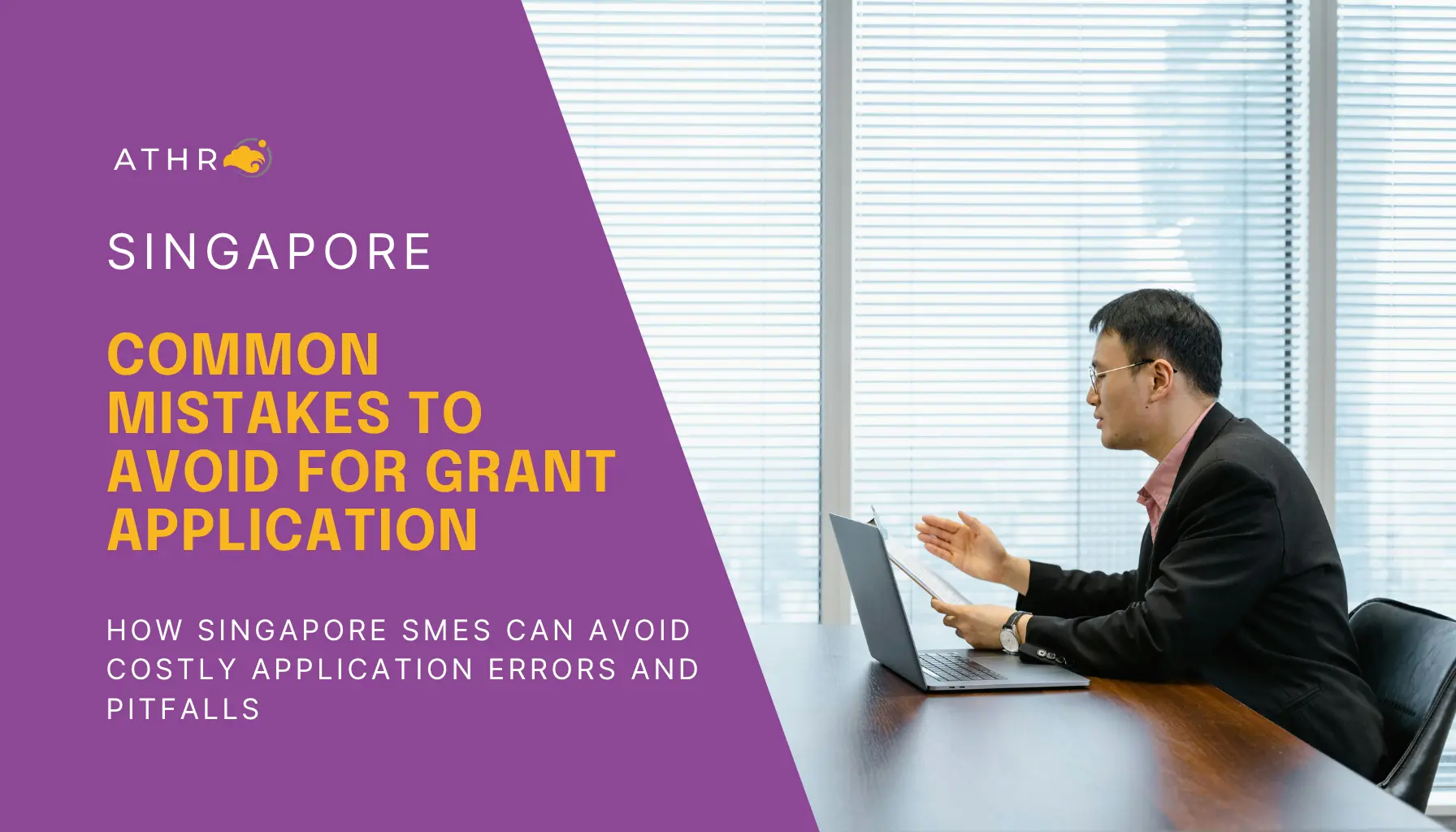


Applying for a government grant in Singapore can be a game-changer for SMEs but it’s also easy to get wrong. Even strong applications can be rejected due to small, preventable errors. Whether you’re applying for the EDG, MRA, or PSG, understanding what not to do is just as important as knowing the process. This guide breaks down ten of the most common mistakes and how to avoid them, based on real Enterprise Singapore and IMDA insights.
Just like any official process, there are strict guidelines to applying for business grants in Singapore. Even strong applications can get rejected for small, avoidable errors.
In this article, we’ll walk through 10 of the most common mistakes SMEs make (and how you can avoid them) drawn from real Enterprise Singapore and IMDA guidelines, as well as lessons from hundreds of local applicants.
One of the biggest (and most costly) mistakes is signing a contract or making payment before your grant is officially approved.
Why this is a problem:
Under Enterprise Singapore’s and IMDA’s rules, any financial commitment before the Letter of Offer (LOF) is issued makes the project automatically ineligible.
What to do instead:
Even if your project qualifies perfectly, starting too early can void your entire application.
For some schemes (like PSG), you must use pre-approved vendors; for others (like EDG), vendors must hold valid certifications such as TR43 or SS680.
Why this is a problem:
Enterprise Singapore or IMDA will reject any vendor that isn’t listed, certified, or qualified.
What to do instead:
Missing documents or inconsistent details are the #1 reason for delayed or failed submissions.
Common errors include:
What to do instead:
Double-check everything before submitting on the BGP:
✅ Financial statements (last FY)
✅ Project proposal (using EnterpriseSG template)
✅ Vendor quotes with full breakdown
✅ Proof of consultant certification
A 30-minute pre-submission review can save months of delay.
Every grant (EDG, MRA, CCP, PSG) has its own rules, scopes, and exclusions.
Why this is a problem:
If your project doesn’t align with the grant’s objectives or scope, reviewers will flag it as “non-compliant.”
What to do instead:
Applying for grants without proper research is like pitching to an investor without knowing what they fund.
Why this is a problem:
Without understanding each grant’s purpose, criteria, and target outcomes, your proposal can feel misaligned lowering your approval odds.
What to do instead:
“Improve our business operations” is not a project goal. It’s a wish.
Why this is a problem:
Reviewers need to see specific, measurable outcomes such as productivity gains, new revenue channels, or cost savings.
What to do instead:
Define clear KPIs. Example:
Quantifiable goals = credible proposal.
A sloppy or unrealistic budget raises red flags immediately.
Why this is a problem:
If costs don’t align with project size, or vendor fees look inflated, Enterprise Singapore may question your credibility.
What to do instead:
Strong financial planning shows you’ll use government funds responsibly.
Each grant has a bigger national purpose e.g., EDG drives innovation, CCP supports hiring, MRA supports internationalisation.
Why this is a problem:
If your proposal doesn’t align with the grant’s direction (e.g., applying for EDG for a routine expense), it gets rejected fast.
What to do instead:
Many companies think approval = done. But if you don’t claim on time, you lose the funding.
Why this is a problem:
Grants are reimbursed only after claim submission, usually within 6 months of project completion. Missing this deadline forfeits the entire amount.
What to do instead:
Timely claims = timely reimbursements.
Grants are co-funding partnerships not handouts. Companies that don’t take them seriously risk rejection or poor credibility in future rounds.
Why this is a problem:
If Enterprise Singapore senses weak accountability or inflated costs, they can reject or claw back funds.
What to do instead:
Securing a government grant in Singapore can transform your business but it requires preparation, precision, and integrity.
From EDG to MRA to CCP, every programme follows strict documentation and review standards. By avoiding these 10 mistakes, you can greatly increase your success rate and even speed up reimbursement once approved.
If you’re unsure where to start, our grant specialists can help you:
📩 Contact us today for a free eligibility check and consultation and let’s make sure your next application gets approved, not rejected.
